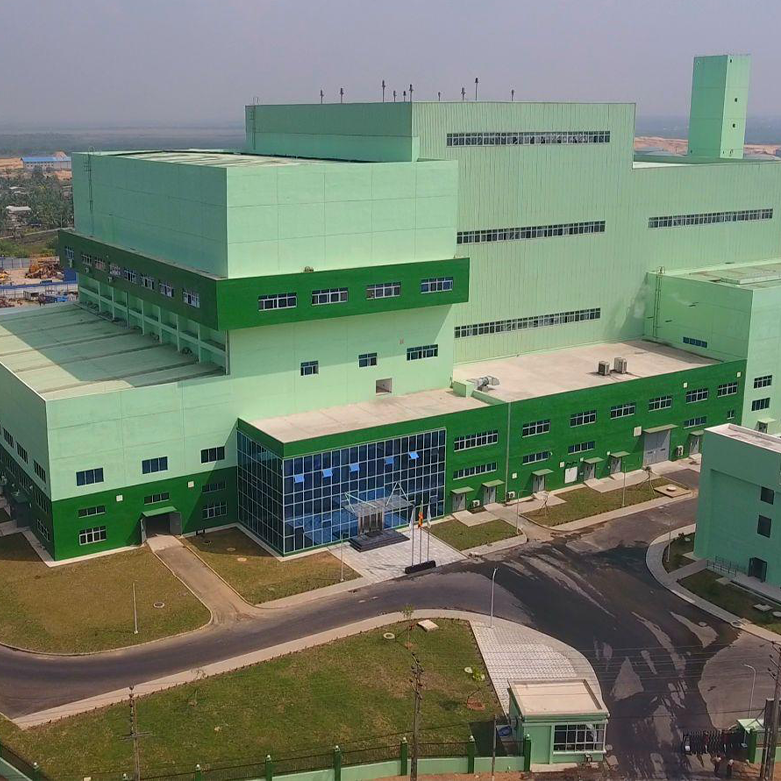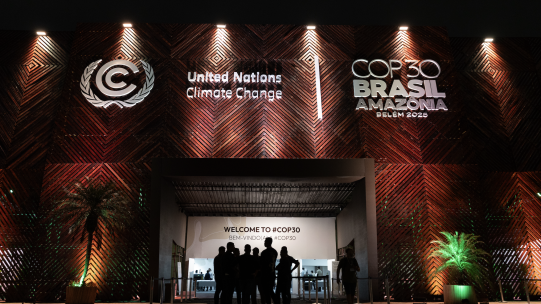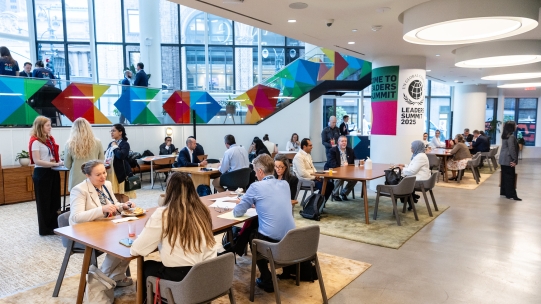Sri Lanka’s first waste-to-energy power plant turns mountains of trash into clean electricity
Read more

In the densely populated Western Province of Sri Lanka, the disposal of solid waste has been a dirty - and dangerous - problem.
Thirty-two people were killed in the collapse of a mountain of waste at the Meethotamulla open dumping site in the Colombo District seven years ago. The pile of rotting debris had shifted from flooding and a fire before it collapsed and buried dozens of people living in nearby homes.
Even without such tragic disasters unfolding, untreated solid waste causes unhealthy air pollution as it decomposes, releasing harmful gasses into the air including highly flammable methane. It poisons the soil and groundwater as well.
Today, Sri Lanka’s Western Province, home to more than six million people, still produces 3,500 metric tons of household waste every day. That’s the equivalent of a stack of 2,600 compact cars or 13,000 motorcycles every day.
To tackle the persistent problem of solid waste disposal, the Western Power Company Ltd, a subsidiary of Aitken Spence PLC, launched the nation’s first waste-to-energy power plant.
Opened in 2021, the waste-to-energy power plant incinerates 600 to 800 metric tons of waste each day and supplies 10 megawatts of electricity to the national grid.
Residue ash left over from the incineration at the plant is repurposed to produce cinder blocks for the construction industry, and the flue gas is treated to remove harmful particles before it is released into the air.

The first waste-to-energy power plant in Sri Lanka, built by the Western Power Company Ltd, a subsidiary of Aitken Spence PLC, a participant of the UN Global Compact.
Aitken Spence gives considerable credit for its sustainability vision to the UN Global Compact, to which it has been a signatory since 2002. Over the last 22 years, the company has participated in many UN Global Compact programmes including the Climate Emergency Task Force, Gender & Diversity, Business & Human Rights and the Sustainable Supply Chain Working Groups as well as several Climate Ambition Accelerators along with the Target Gender Equality Accelerator, Business & Human Rights Accelerator and the SDG Innovation Accelerator.
“As a diversified conglomerate we have always taken a progressive approach to investment,” said Deshamanya Harry Jayawardena, Chairman of Aitken Spence PLC. “This venture is guided by the principles of sustainability, responsible corporate stewardship, and progress through innovation and development.”
Building of the waste-to-energy plant meant overcoming unforeseen challenges, including interest rate fluctuations that caused financial losses, a failure of some promised support systems and a financial crisis that led to depreciation of the local currency, the company said.
Prime Minister, Mahinda Rajapaksa has called its construction “a milestone in the solid waste management process not only in the city of Colombo, but in entire Sri Lanka.”
The concept of a waste-to-energy power plant was first proposed in 2012, and it was fast-tracked by the government in the wake of the 2017 Meethotamulla disaster.
The power plant so far has sustainably repurposed more than 815,000 metric tons of municipal solid waste into energy for the national grid.
“Otherwise it all would have ended up in an open dump, which would have caused several environmental consequences especially on climate change,” said R. Shanmugapriya, Assistant Director (Tech and Training) at the Waste Management Authority of the Western Province.
“This plant has found a permanent solution to a national issue of waste management and most importantly helped to preserve the surrounding environment, wetlands and waterways for the future.”
The waste-to-energy process also has helped protect the sensitive Muthurajawela wetland ecosystem that has been threatened by solid waste collection.
“For years, waste disposal had become a severe problem,especially in the Western Province,” said Shahina Mysan, Director of Engineering (Solid Waste Management) at the Colombo Municipal Council.
“This municipal solid waste was accumulating in landfills, polluting both the ground water and the environment,and spreading diseases. Moreover, the municipal solid waste was accumulating in a sensitive wetland ecosystem which cannot be valued,” Mysan said.
“The waste-to-energy power plant has not only ensured the safe disposal of the municipal solid waste, it has also safeguarded our wetlands and their own ecosystems in the surrounding areas of the Western Province for the future generations of our country.”
Rathika de Silva, Executive Director, UN Global Compact Network Sri Lanka, noted that Aitken Spence was one of the first companies to join the UN Global Compact Network Sri Lanka.
“Their dedication has not only fueled their business growth but has also positioned them as trailblazers in innovation, exemplified by their pioneering Waste-to-Energy project,” de Silva said. “I commend them for their boldness and creativity in championing sustainability, and basing their strategic decisions on scientific data.”

